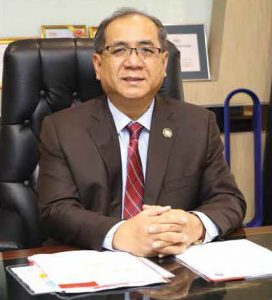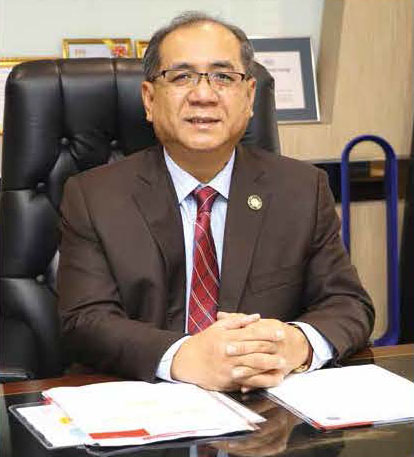
Our creed as civil servants have always been that of “An Honour to Serve”. As I have said time and again, there are three dimensions of dedicated service that we are expected to provide in keeping with our noble calling as civil servants. These are 1) people-centric service; 2) service from the heart and 3)service with foresight. I have touched on the first two dimensions in my previous columns. This time, I’d like to focus on what I call “service with foresight”.
While civil servants are not in any way seers and prophets, we are expected to somehow predict and plan for the kind of future that will best serve the interests of the people we serve. Any policy decision, or program or project plans that we find ourselves responsible and accountable to carry out today will definitely leave a lasting impact and will continue to affect future generations.
For the Sarawak civil servants of today, our daunting task demands of us the foresight and the ability to prepare the people that we serve to face the challenges brought about by the digital revolution and the sweeping changes that it brings. I am sure that all of us, at one point or time in our daily lives, must have been stumped and even bewildered by the rapid changes that we are forced to confront as the digital age descended upon us. Thankfully, human beings have the innate capacity to adapt in order to survive.
But we need to go beyond being able to adapt and survive. We need to be able to envision the future and acquire the means and knowledge to create that future.
The responsibility to bring progress, development and prosperity to Sarawak and its people fall on the shoulders of our political leaders who are the chosen representatives of the people. And it falls on the shoulders of every civil servant at every level to execute the policies, plans and programs that will bring about that development and progress.
This responsibility demands a civil service organization that is far-sighted and have a clear picture of what lies ahead. As civil servants in today’s digital era, the one competency that we must be able to demonstrate is the ability to craft policies, design programs and projects that will not only meet the needs of the people that we serve today, but also the needs of the future generations. Every idea and effort we make, starting from planning to full implementation, should focus on sustainability in all aspects.
To remain relevant and responsive to the changing environment and needs of society, we must be able to think strategically about the future and prepare for the predictable and unpredictable things. We must be equipped with the knowledge and skills to analyze the data or information and process these data to design the outcomes that will provide the greatest benefit to society.
To that end, civil servants must have the ability to track trends and anticipate future challenges. They must be able to produce analysis of possible and alternative strategies as well as options for action based on existing intelligence and prior knowledge. And they must have the capacity to test these analyses against any possible changes that may occur.
Hindsight is about understanding the past, insight is about understanding the present, foresight is about understanding the future systematically. Hence, the key notion about “service with foresight” is “systematically” planning for the future with the use of data and information.
It is fair to say that Sarawak’s 2030 statedevelopment agenda is a systematic plan for the future of Sarawak. The State government wants to make Sarawak a developed state by 2030. This agenda requires a different approach from what has been done in the past. While we do not forget the lessons and insights gleaned from our experiences in the past, we must stand ready to embrace new thinking and new ways of doing things. We need more innovative methods to realize the future that we have envisioned for Sarawak
A civil service that uses a farsighted planning approach enables civil servants to plan and execute programs and projects using new ways of thinking. Looking ahead is a critical capability of the government administrative machinery responsible for strategic decision making, strategic management and, most importantly, policy cohesion.
Civil servants need to be farsighted, not complacent or obsessed with current achievements, always on the lookout for and ready to take advantage of emerging opportunities and approaches that will minimize risks, maximize the use of our resources and deliver the best value to our stakeholders, primarily the people that we serve. We need civil servants who have the ability to explore the future with imagination, wisdom and responsibility who are not only able to adapt to change but can also create future opportunities.





